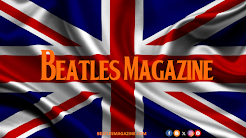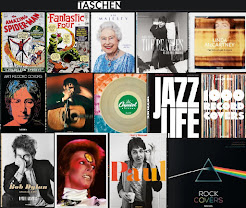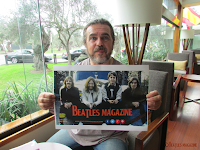Bill Eppridge was sent on a photo assignment for Life
Magazine on Feb. 7, 1964. Based on how his editor described the job,
Eppridge had no way of knowing it would be one of the most important
days of his career.
"Dick Pollard at Life told him 'go
the airport, JFK, there's a rock group arriving called The Beatles,'"
said Adrienne Aurichio, wife of the late photojournalist. "[Pollard] was
not too impressed by them. He said for him to just get pictures of them
arriving."
Eppridge, however, was impressed, not just by the four
musicians, but also by the mob of fans. They were everywhere: against
barricades, on the roof, inside and outside the terminal, most of them
young girls, holding banners, reaching out to touch the stars, shrieking
for all they were worth.
"He told Dick 'this is kind of interesting, I'd
like to stick with it for a few days,'" Aurichio said. "He was more
interested in the reaction. He liked to see what people saw in them."
He tagged along on their U.S. journey for six days.
That road trip was the basis for a 2014 book, "The Beatles: Six Days
that Changed the World," with 148 pictures. That book has been condensed
into a 55-item exhibit, which is on view now at Western Connecticut
State University in Danbury.
Eppridge died in 2013 in Danbury,
after living his last years in New Milford. Aurichio, who was married to
him for 16 years, curated the exhibit.
On Feb. 7, 1964, Paul
McCartney, John Lennon, George Harrison and Ringo Starr arrived at JFK
and held a press conference, then went to the Plaza Hotel in New York
City, where they monitored their publicity. On Feb. 8, a sick Harrison
missed a Central Park photo op, then he joined the boys at a rehearsal
at the Ed Sullivan theater. On Feb. 9, they rehearsed, performed on
Sullivan's show and had dinner at the Playboy Club. On Feb. 10, a
reception at the Plaza was attended by reporters and DJs. On Feb. 11,
the Beatles took a train to Washington, D.C., met the press at the
Coliseum, performed a concert and went to a party at the British
Embassy. On Feb. 12, they took a train back to New York's Penn Station
and performed at Carnegie Hall.
After
that point the Beatles went to Florida to perform, and Eppridge handed
the assignment over to another photographer. "He was the sort of person
who, when he felt that he had the story, he didn't want to do it again,"
Aurichio said.
Eppridge's photos convey madness with a few
moments of quiet. They show teenagers crazed to the point of
criminality, a crush of cops, photographers and reporters, a swag
merchant who misspelled the group's name, and the band's handlers:
manager Brian Epstein, press agent Brian Sommerville and road manager
Neil Aspinall. Aspinall got the ultimate fantasy bucket-list job:
standing in for George at a rehearsal. In the center of it all are the
unflappable foursome, who seemed to enjoy most hanging out with DJs.
"With
the DJs, suddenly they look like little kids amongst their idols,"
Aurichio said. "[The DJs] were their heroes because they played their
music."
Some of Eppridge's photos call to mind "A Hard Day's
Night," the movie the Beatles made based on their own experiences.
Besides The Beatles, other celebrities appear frequently in his photos,
most prominently the "fifth Beatle," DJ Murray the K; the legendary
documentarians the Maysles brothers; and photojournalist Eddie Adams,
who five years later took the unforgettable photo of a Vietnamese man
being executed.
Eppridge
worked in Vietnam, too, and he covered Robert F. Kennedy's presidential
run up until the day of Kennedy's assassination. He covered Woodstock
and the 50th anniversary of the Russian Revolution. But the Beatles
assignment always held a special place in his career and his heart.
Aurichio compared Eppridge's experiences with those of photojournalists
today.
"You can't do this now. We can't get close to rock stars.
They all want to control everything," she said. "He had six whole days
of watching the drama unfold."
"THE BEATLES: SIX DAYS THAT CHANGED THE WORLD"
will be at the Visual and Performing Arts Center on the Westside campus
of Western Connecticut State University, 43 Lake Ave. Extension in
Danbury, until March 13. The opening reception is Feb. 6 from 4 to 7
p.m.








































No comments:
Post a Comment